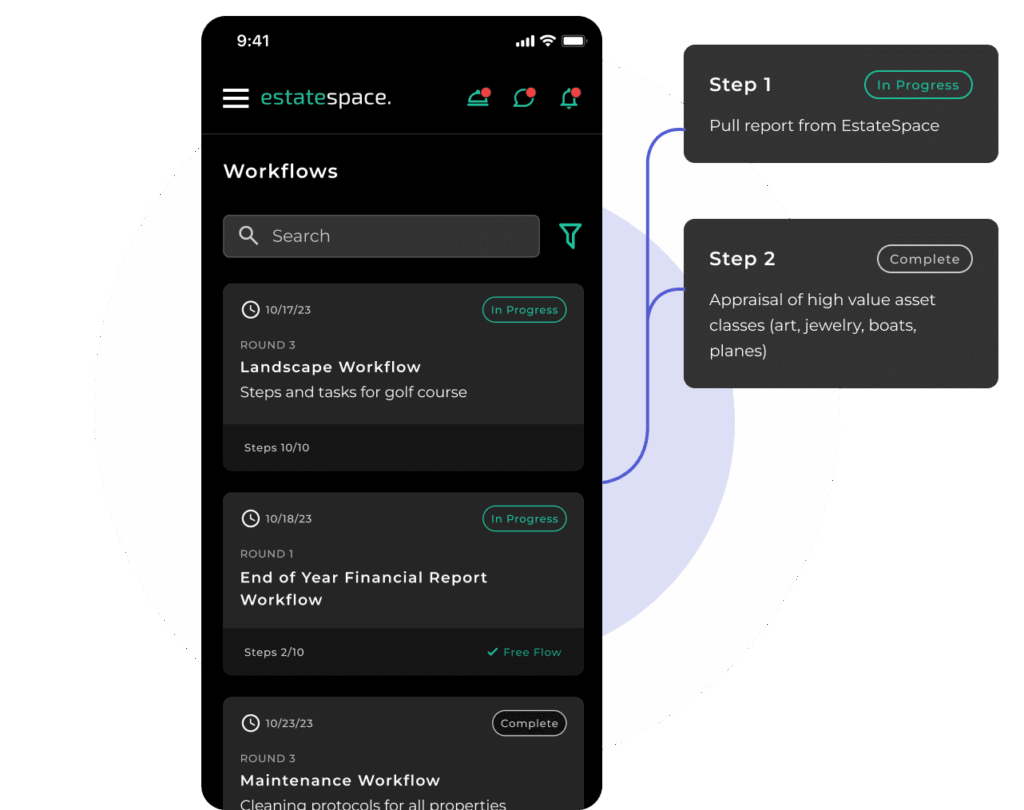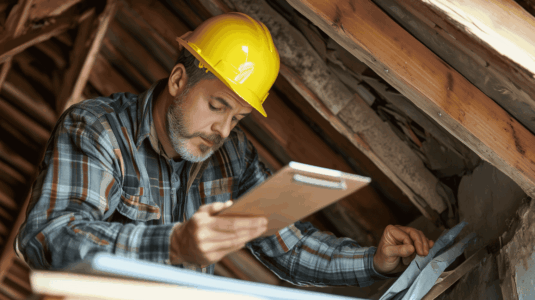Maintaining a home requires more than occasional repairs—it demands smart home maintenance management that protects your investment while enhancing your quality of life. Whether you’re a homeowner managing your primary residence or a family office overseeing multiple properties, effective maintenance strategies can reduce long-term costs and prevent costly emergencies.
Furthermore, modern home maintenance management goes beyond traditional approaches. Instead, it uses technology, systematic planning, and proactive strategies to ensure your property remains in optimal condition. Additionally, the right systems provide real-time visibility into maintenance tasks, helping all stakeholders stay informed and coordinated.
Strategic Approach to Home Maintenance Management
Effective home maintenance management requires a proactive approach that emphasizes prevention over reaction. Instead of waiting for problems to occur, smart property managers focus on systematic care that preserves value and prevents costly repairs. Therefore, successful strategies combine planning, technology, and coordinated execution.
Key Strategies for Success:
Preventative Maintenance Planning: Regular inspections and timely repairs prevent minor issues from becoming major problems. For instance, checking HVAC systems, plumbing, and electrical setups regularly can prevent expensive emergencies. According to the U.S. Department of Energy, regular HVAC maintenance can improve system efficiency by 5% to 15%. Moreover, these practices align with industry-standard home maintenance guidelines that emphasize consistent care and early intervention.
Systematic Task Scheduling: Creating a maintenance calendar with daily, weekly, monthly, and seasonal tasks ensures nothing gets overlooked. As a result, this systematic approach helps property managers address each aspect of home upkeep methodically.
Real-Time Oversight: Modern technology provides real-time updates and tracking for maintenance tasks. Consequently, this ensures everyone involved stays informed and coordinated, reducing miscommunication and delays.
Vendor Relationship Management: Building strong relationships with reliable service providers creates a network of trusted professionals. Additionally, maintaining up-to-date contact lists ensures quick access during emergencies.
Professional asset managers consistently report that systematic home maintenance management delivers better results than reactive approaches while reducing overall costs and stress.
Common Challenges in Home Maintenance Management
Managing home maintenance presents several challenges that require smart solutions and careful planning. However, with the right approach, these obstacles become manageable:
Primary Coordination Challenges:
- Task Coordination: Synchronizing activities between homeowners, staff, and vendors becomes complex, especially across multiple properties or large estates. Nevertheless, systematic planning can streamline these processes.
- Communication Gaps: Ensuring clear and efficient communication among all parties requires structured systems and protocols. Therefore, establishing clear channels becomes essential for success.
- Schedule Conflicts: Aligning schedules between homeowners, staff, and vendors can be challenging, particularly for time-sensitive maintenance tasks. However, advanced scheduling tools help resolve these issues.
- Preventative Planning: Staying ahead of potential issues requires careful monitoring and predictive planning capabilities. Consequently, proactive systems deliver better outcomes than reactive approaches.
These challenges reflect broader estate management operations complexities that require sophisticated coordination and communication systems.
Smart Solutions for Home Maintenance Management
To streamline home maintenance management, consider implementing these actionable improvements. First, systematic planning creates the foundation for success. Then, technology integration amplifies these efforts:
Systematic Improvement Steps:
Develop a Complete Maintenance Plan: Create detailed task lists with specific timelines and clear responsibilities. According to the National Association of Home Builders, regular maintenance can save homeowners 1% to 4% annually on repair costs. Furthermore, documented plans ensure consistency and accountability.
Use Technology Platforms: Implement software that offers task scheduling, real-time updates, and communication tools. As a result, this ensures everyone stays informed and tasks get completed efficiently. Moreover, digital systems provide valuable data for future planning.
Invest in Staff Training: Ensure your team understands maintenance procedures and can effectively use technological tools. Similarly, well-trained staff deliver better results and identify potential issues early. Therefore, ongoing education becomes a valuable investment.
Schedule Routine Inspections: Conduct regular property inspections to identify and address potential issues before they become major problems. Consequently, this proactive approach prevents expensive emergency repairs. Additionally, documented inspections create valuable maintenance histories.
Maintain Clear Communication: Keep all stakeholders informed about maintenance activities, schedules, and outcomes. Thus, transparent communication reduces misunderstandings and improves coordination. Furthermore, regular updates build trust and accountability.
Estate maintenance cost control becomes significantly more effective when supported by systematic planning and intelligent technology platforms.
Technology-Enabled Real-Time Visibility
Having real-time visibility into maintenance tasks, schedules, and communications is essential for effective home maintenance management. Meanwhile, modern technology makes this coordination possible through smart systems and automated workflows. Therefore, the right tools transform complex coordination into manageable processes.
Essential Technology Features:
Centralized Management Dashboard: Use a single platform where all tasks, schedules, and communications are logged and easily accessible. As a result, this eliminates confusion and ensures nothing gets overlooked. Furthermore, centralized data provides valuable insights for future planning.
Smart Notifications: Set up automated alerts for upcoming tasks, overdue items, and completed work. Consequently, these reminders keep everyone on track and prevent maintenance delays. Additionally, customizable alerts ensure relevance for different stakeholders.
Transparent Communication Channels: Establish clear communication systems between homeowners, staff, and vendors. Therefore, everyone should know their roles and have access to relevant information. Moreover, documented communications create accountability and reference points.
Performance Tracking: Monitor maintenance outcomes and vendor performance to identify areas for improvement and ensure quality standards. Similarly, this data helps optimize future planning and resource allocation. Thus, continuous improvement becomes possible through systematic measurement.
Project managers overseeing complex renovations and ongoing maintenance benefit significantly from integrated systems that coordinate multiple activities and stakeholders.
Advanced Home Maintenance Management Strategies
Modern home maintenance management goes beyond basic upkeep to include predictive analytics, smart resource allocation, and strategic planning that maximizes property value.
Advanced Planning Techniques:
Predictive Maintenance: Use data analytics to predict when equipment and systems will need attention. This approach prevents unexpected failures and optimizes maintenance timing.
Resource Optimization: Coordinate maintenance activities to minimize disruption and maximize efficiency. Smart scheduling reduces costs and improves outcomes.
Value-Based Prioritization: Focus maintenance efforts on activities that provide the greatest return on investment. This strategic approach ensures resources are used effectively.
Seasonal Planning: Develop maintenance schedules that align with seasonal needs and weather patterns. This timing optimization prevents weather-related damage and ensures optimal system performance.
Understanding traditional asset oversight limitations helps property owners appreciate the value that modern home maintenance management systems provide.
Measuring Home Maintenance Management Success
Effective home maintenance management delivers measurable improvements in both cost control and property condition:
Key Performance Indicators:
- Cost Reduction: Systematic maintenance typically reduces repair costs by 15-40% compared to reactive approaches
- System Reliability: Proactive care extends equipment life and reduces unexpected failures
- Property Value: Well-maintained properties retain value better and often appreciate more than neglected properties
- Stakeholder Satisfaction: Clear communication and reliable service delivery improve satisfaction for all parties involved
Physical asset risk management for family offices demonstrates how proactive maintenance strategies protect valuable assets while optimizing operational efficiency.
EstateSpace: Complete Home Maintenance Management Solution
EstateSpace provides a complete platform for home maintenance management that addresses the challenges property owners face. Our product overview demonstrates how integrated technology transforms maintenance coordination from a reactive burden into a proactive advantage.
Our platform delivers:
Smart Scheduling: Automated task planning that optimizes timing and resource allocation across multiple properties and maintenance activities.
Real-Time Coordination: Instant communication and updates that keep all stakeholders informed and aligned on maintenance activities and outcomes.
Predictive Insights: Predictive maintenance for high-value asset portfolios that prevents problems before they impact property condition or value.
Complete Integration: Seamless coordination between maintenance activities, vendor management, and financial oversight for comprehensive property care.
Advanced Maintenance Automation
Modern home maintenance management increasingly relies on AI-powered asset management for family offices and intelligent automation that learns from patterns and optimizes performance over time.
Smart systems can predict maintenance needs, optimize vendor selection, and coordinate complex schedules automatically. This reduces administrative burden while improving maintenance outcomes and cost control.
Smart Home Maintenance Management
Mastering home maintenance management involves adopting proactive strategies, using smart technology, and ensuring clear communication among all stakeholders. By implementing systematic approaches supported by modern technology, property owners can enhance their property’s longevity while improving their quality of life.
The benefits extend beyond immediate cost savings. Professional home maintenance management demonstrates commitment to property preservation, reduces stress through reliable systems, and protects long-term investment value through consistent care.
Understanding private property management challenges helps property owners appreciate how intelligent systems can transform maintenance from a reactive burden into a strategic advantage.
Ready to transform your home maintenance management approach?
Contact EstateSpace to discover how our integrated platform streamlines maintenance coordination, reduces costs, and ensures your property receives the professional care it deserves through intelligent automation and real-time oversight.





